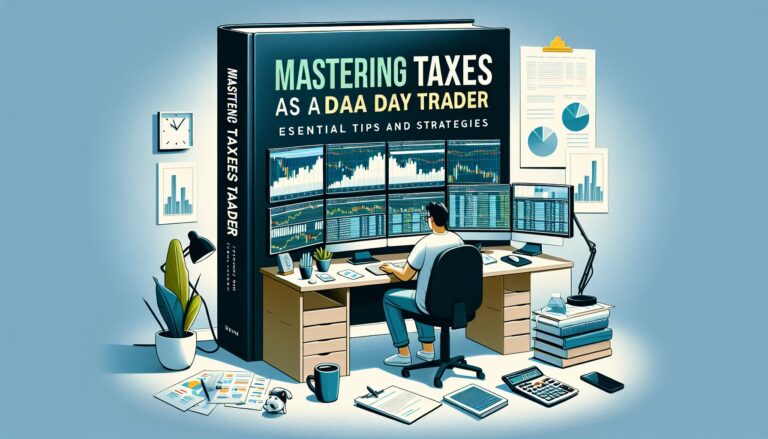Mastering Taxes as a Day Trader: Essential Tips and Strategies
Day trading can be a lucrative pursuit for those with a passion for financial markets. While the potential rewards are appealing, one aspect of day trading that can be challenging is tax management. Understanding the tax implications of day trading is crucial to maximizing earnings and staying compliant with tax laws. This post will unveil essential tips and strategies for effectively managing your taxes as a day trader.
An Understanding of Day Trading Taxes
A day trader might be lured by the potentially substantial financial returns, but they must also grapple with the complex world of taxes. Regardless of potential profits and losses, the tax implications for day traders can be a significant part of trading strategy.
As per the Internal Revenue Service (IRS) guidelines, day traders fall into the “trader tax status.” The frequency and volume of transactions are key determinants for tax treatment. It is essential for day traders to accurately keep track of their trades and transactions, including keeping appropriate records for tax purposes.
The Impact of Trader Tax Status
Day traders with the “trader tax status” have some advantageous tax benefits. They can treat trading related expenses as business expenses; this includes high-speed internet, trading software, and educational resources.
Most importantly, with the trader tax status, you can use the mark-to-market (MTM) accounting method. This method allows you to mark all holdings to the market price at the end of the year, which can significantly impact your taxable income.
One key to note, however, is that the IRS carefully scrutinizes those claiming trader tax status. Therefore, it is advisable to ensure you meet all IRS guidelines fully before filing for it.
Keep Proper Records
One of the most crucial tips for managing taxes as a day trader is maintaining complete and accurate records. You should properly document all transactions, expenses, and income linked to your trading activity. Your records will not only help you track your trading performance but also serve as evidence during potential IRS inquiries.
Trading platforms typically provide transaction history reports, which can be very helpful during tax preparation. It’s also advisable to keep track of the time spent on trading activity, as this can be relevant when justifying the trader tax status.
Seek Professional Guidance
Tax laws and IRS guidelines can be intricate, and for day traders, they might be even more complex considering their unique tax status. Specific tax strategies can have different implications depending on an individual’s situation. Therefore, it’s highly recommended to seek tax professional’s advice to ensure proper tax planning and compliance.
When looking for tax professionals, make sure they have experience with day traders and are familiar with the tax strategies and regulations specific to day trading.
Conclusion
In conclusion, managing taxes needs to be an integral part of a day trader’s strategy. Grasping how taxes apply to day trading transactions, maintaining proper records, and seeking professional advice are key strategies to managing taxes effectively as a day trader. While this might add a layer of complexity to your trading activities, it’s vital to ensure you are maximizing your profits legally and staying in compliance with tax laws.
Remember, the effort you put into planning your tax strategies today will ensure a smoother tax season when it rolls around and could significantly increase your profitability as a day trader.

